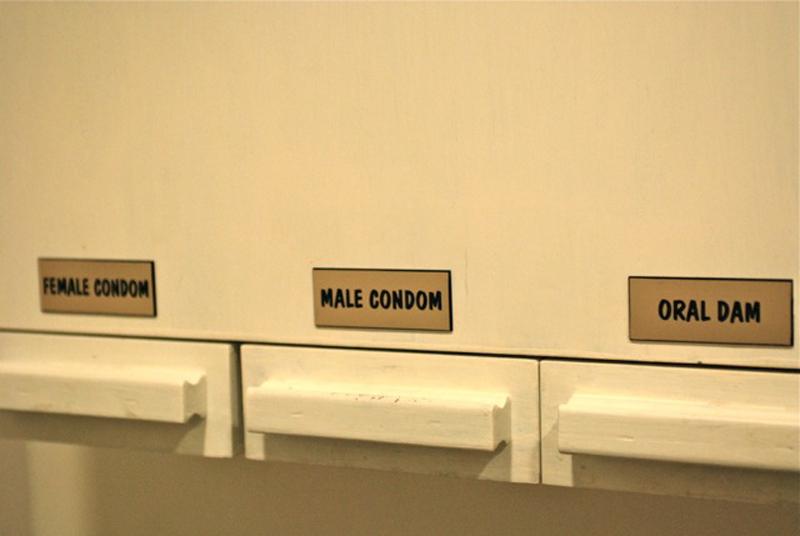The Residence Halls Association is in the process of seeking approval from hall governments to install sexual health and safety product dispensers where they are not already available.
Halls with governments that approve the dispensers and provide $100 in funding to cover the costs of the materials for the dispensers – either from their own budget or by requesting funds from RHA — will see dispensers installed by the start of next semester.
“The Sexual Health and Safety Products Initiative started a few years back with an idea from the Black Men’s Initiative to make condoms available to students in the residence halls,” RHA President Zack Folk said. “There was initially the usual backlash you get when you are trying to do something positive, but since then there have been a lot of conversations between RHA, the chancellor, the Student Health Center and others, and it has gotten to the point where most people recognize that bringing these products into the halls is a good idea and something the university should support and fund.”
Folk began advocating for the installation of dispensers in all residence halls after being elected RHA president last year.
“At the beginning of the year, I got a letter from the Student Health Center asking RHA to provide funding for the six dispensers already installed in various residential locations on campus,” Folk said. “I realized that there was no way that RHA would be able to fund that entire amount and that if we wanted to make this sustainable, it would have to be funded by the university.”
Previously the stocking and maintenance of the six dispensers already installed on campus had been paid for by an outside grant. The grant has run out, leading the Student Health Center to ask RHA to fund the whole program. As a result of this request, Folk began looking into the benefits of the program and ultimately decided to present a joint resolution at a joint session with several leadership groups on campus. He decided to request the university provide funds for the dispensers and products.
“I looked at the research done by the SHAPE program, which clearly showed that making these products available encourages safer sex practices without actually encouraging or increasing sexual activity among students,” Folk said. “I realized that this was something valuable and that if we wanted it to be sustainable and expanded to all the residence halls so that it would be fully effective, it would need to be funded by the university. I asked the university to do in that in the resolution.”
The resolution was passed by the joint session, sending it to the desk of Chancellor Brady Deaton. He approved it, provided that the dispensers are paid for only with the student fees and not other sources of university funding.
Deaton’s approval allowed RHA to reach an agreement with the Department of Residential Life and the Student Health Center — both funded with student fees — to fund the implementation and continual restocking of the dispensers, paving the way for them to be installed in all halls that approve them.
RHA will provide $1,000 annually to support the program, and Residential Life and the Student Health Center will provide roughly $9,000 a year to keep the dispensers stocked and operational.
“This is a great program that’s providing something that is, and will continue to be, utilized by students, so I’m happy it is being implemented,” Folk said. “While this can be an awkward issue, it is something that directly affects students’ lives and their health and safety.”
Folk said seven halls have already approved the installation and he expects most of the remaining governments to do so as well.
Those hall governments that do not approve the dispensers or choose to postpone the decision will be asked to consider it again next year. That process, as well as the promotion of the newly installed devices, will be the responsibility of incoming RHA President Jackson Farley, who has also expressed support for the dispensers.
“Our whole executive board is in support of the initiative,” Farley said. “It makes these products more accessible for students when and where they need them, and it is definitely a good initiative to promote good health and safe sex.”








